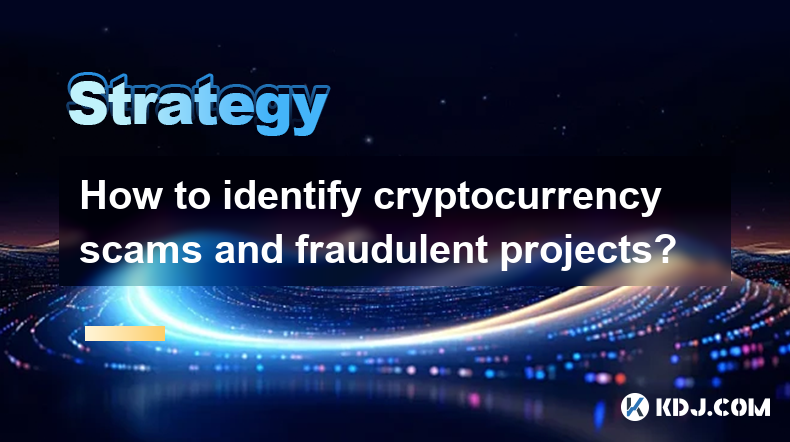-
 Bitcoin
Bitcoin $84,993.8786
0.34% -
 Ethereum
Ethereum $1,599.9353
1.27% -
 Tether USDt
Tether USDt $0.9999
-0.01% -
 XRP
XRP $2.0813
0.78% -
 BNB
BNB $592.4105
0.82% -
 Solana
Solana $138.1937
3.17% -
 USDC
USDC $1.0000
0.00% -
 Dogecoin
Dogecoin $0.1589
2.71% -
 TRON
TRON $0.2413
-1.55% -
 Cardano
Cardano $0.6307
2.60% -
 UNUS SED LEO
UNUS SED LEO $9.3881
1.71% -
 Chainlink
Chainlink $12.8366
1.65% -
 Avalanche
Avalanche $19.2740
1.26% -
 Stellar
Stellar $0.2445
1.24% -
 Toncoin
Toncoin $2.9868
-0.07% -
 Shiba Inu
Shiba Inu $0.0...01221
3.10% -
 Hedera
Hedera $0.1669
0.87% -
 Sui
Sui $2.1351
1.39% -
 Bitcoin Cash
Bitcoin Cash $336.8750
2.70% -
 Hyperliquid
Hyperliquid $18.0804
6.57% -
 Polkadot
Polkadot $3.7246
1.15% -
 Litecoin
Litecoin $76.4144
1.52% -
 Dai
Dai $0.9999
0.00% -
 Bitget Token
Bitget Token $4.4597
2.23% -
 Ethena USDe
Ethena USDe $0.9992
0.00% -
 Pi
Pi $0.6437
5.71% -
 Monero
Monero $212.9449
-1.50% -
 Uniswap
Uniswap $5.2448
1.29% -
 Pepe
Pepe $0.0...07289
2.88% -
 OKB
OKB $50.8316
2.01%
How to identify cryptocurrency scams and fraudulent projects?
Thorough due diligence is crucial in the crypto world. Analyze whitepapers, team legitimacy, tokenomics, and technology; verify information using reputable sources and community feedback to avoid scams.
Mar 05, 2025 at 02:37 pm

Key Points:
- Understanding common scam tactics in the crypto space.
- Identifying red flags in whitepapers, websites, and social media presence.
- Analyzing team legitimacy and project transparency.
- Evaluating the project's tokenomics and technology.
- Utilizing reputable resources and community feedback for verification.
How to Identify Cryptocurrency Scams and Fraudulent Projects
Navigating the cryptocurrency landscape requires vigilance. The decentralized nature of cryptocurrencies makes them susceptible to scams and fraudulent projects. This article outlines key strategies to help you identify and avoid these risks. Remember, no investment is risk-free, but due diligence can significantly reduce your exposure to fraudulent schemes.
Recognizing Common Scam Tactics
Crypto scams employ various deceptive techniques. High-yield investment programs (HYIPs) promising unrealistic returns are a classic example. These often disappear after accumulating substantial investor funds. Pump-and-dump schemes artificially inflate a cryptocurrency's price before selling off their holdings, leaving late investors with significant losses. Fake celebrity endorsements and misleading marketing campaigns are also frequently used. Always be wary of promises that sound too good to be true.
Analyzing Project Whitepapers and Websites
A thorough examination of a project's whitepaper is crucial. Look for vague or unrealistic claims, inconsistencies in information, and a lack of technical detail. A professional and well-designed website inspires confidence, but conversely, poorly designed websites with grammatical errors and broken links are major red flags. Check for a clear roadmap and verifiable progress towards stated goals. Missing or outdated information is a significant warning sign.
Investigating the Team and Project Transparency
Legitimate projects usually have transparent teams with verifiable backgrounds. Check for publicly available information about the team members, such as LinkedIn profiles or previous work experience. An anonymous or pseudonymous team should raise serious concerns. Transparency in the project's development process is also vital. Open-source code, regular updates, and community engagement indicate a higher level of legitimacy. Opaque operations often mask fraudulent intentions.
Evaluating Tokenomics and Technology
Understanding a project's tokenomics is essential. Analyze the token's utility, supply, and distribution. A token with no clear use case or an excessively large supply is a potential red flag. Scrutinize the underlying technology. Is it innovative and well-executed? Or is it a poorly implemented copy of existing technologies? Technical expertise is valuable, but don't hesitate to seek advice from others if you lack the necessary skills.
Utilizing Reputable Resources and Community Feedback
Leverage reputable resources like CoinMarketCap and CoinGecko to gather information about a project. Check for community feedback on forums and social media platforms. Be cautious of overwhelmingly positive reviews, as these might be artificially inflated. Look for balanced discussions and critical analysis. The overall sentiment should provide a clearer picture of the project's credibility. Remember that online reviews can be manipulated, so use them with caution.
Step-by-Step Guide to Due Diligence:
- Research the project: Explore its website, whitepaper, and social media presence.
- Verify the team: Check for verifiable backgrounds and experience.
- Analyze the tokenomics: Examine the token's utility, supply, and distribution.
- Assess the technology: Evaluate the project's innovation and implementation.
- Seek community feedback: Explore forums and social media for user opinions.
- Consult reputable resources: Utilize CoinMarketCap, CoinGecko, and other reliable sources.
- Consider professional advice: Consult with financial advisors specializing in cryptocurrencies.
Common Questions and Answers:
Q: What are some common red flags in cryptocurrency projects?
A: Unrealistic promises of high returns, anonymous teams, unclear whitepapers, poor website design, lack of transparency, and overwhelmingly positive reviews are all significant red flags. Always be skeptical of opportunities that seem too good to be true.
Q: How can I verify the legitimacy of a cryptocurrency project's team?
A: Search for team members on professional networking sites like LinkedIn. Look for previous work experience, educational background, and any public statements or appearances. Lack of verifiable information should raise serious concerns.
Q: What resources can I use to research cryptocurrency projects?
A: Reputable resources like CoinMarketCap, CoinGecko, and specialized cryptocurrency news websites provide valuable information. However, always cross-reference information from multiple sources to avoid bias.
Q: Is it safe to invest in any cryptocurrency project recommended by influencers on social media?
A: No. Social media influencers often receive payment for promoting projects, regardless of their legitimacy. Always conduct thorough due diligence before investing in any cryptocurrency project, regardless of its endorsement. Never base investment decisions solely on social media recommendations.
Q: How can I protect myself from cryptocurrency scams?
A: Only invest what you can afford to lose. Never share your private keys or seed phrases with anyone. Be wary of unsolicited investment opportunities. Conduct thorough research and due diligence before investing in any cryptocurrency project. Diversify your portfolio to mitigate risk. Always remain skeptical and question everything.
Disclaimer:info@kdj.com
The information provided is not trading advice. kdj.com does not assume any responsibility for any investments made based on the information provided in this article. Cryptocurrencies are highly volatile and it is highly recommended that you invest with caution after thorough research!
If you believe that the content used on this website infringes your copyright, please contact us immediately (info@kdj.com) and we will delete it promptly.
- Ripple's XRP price has held on well despite recent market volatility
- 2025-04-19 13:20:13
- With a SHIB burn of nearly 28 billion tokens in a day
- 2025-04-19 13:20:13
- Bitcoin's value has transformed dramatically since its creation, rising from $0.08 in 2010 to an all-time high of $69,000 in 2021.
- 2025-04-19 13:15:13
- Ethereum Whales Have Been Accumulating ETH at a Stash Rate, Pointing to an Impending Price Rally
- 2025-04-19 13:15:13
- This weekend's best sweepstakes casino promos include our favorite providers
- 2025-04-19 13:10:13
- A volatile trading session looms as $2.02 billion in Bitcoin [BTC] options and $280 million in Ethereum [ETH] options are set to expire today.
- 2025-04-19 13:10:13
Related knowledge

What does SHIB's Cardano coefficient below 0.3 indicate?
Apr 19,2025 at 08:00am
What does SHIB's Cardano coefficient below 0.3 indicate? The Cardano coefficient, often used within the cryptocurrency community, is a metric that helps investors and analysts understand the correlation between different cryptocurrencies. When it comes to SHIB (Shiba Inu) and its Cardano coefficient falling below 0.3, this indicates a relatively low cor...

SHIB's Willy indicator is blunted in the oversold area. Should I buy the bottom?
Apr 19,2025 at 11:50am
Understanding the Willy Indicator and Its Role in SHIBThe Willy Indicator is a technical analysis tool used by traders to identify potential buying and selling opportunities in the cryptocurrency market. For Shiba Inu (SHIB), this indicator has recently shown signs of being blunted in the oversold area. This situation often prompts traders to consider w...

SHIB's OBV indicator hits a new high, but is the price stagnation dangerous?
Apr 19,2025 at 12:43pm
The On-Balance Volume (OBV) indicator for Shiba Inu (SHIB) has recently hit a new high, which is an interesting development for traders and investors in the cryptocurrency space. Despite this positive signal from the OBV, SHIB's price has remained stagnant, raising questions about the potential dangers of such a situation. In this article, we will delve...

Should I reverse the operation when the long-short ratio of SHIB perpetual contract reaches 3:1?
Apr 19,2025 at 04:36am
Understanding the Long-Short Ratio in SHIB Perpetual ContractsThe long-short ratio is a key metric in the world of cryptocurrency trading, particularly when dealing with perpetual contracts. For SHIB (Shiba Inu) perpetual contracts, this ratio indicates the balance between traders who are betting on the price of SHIB to rise (long positions) and those b...

Where is the average cost line for short-term holders of SHIB?
Apr 19,2025 at 03:42am
The average cost line for short-term holders of SHIB, or Shiba Inu cryptocurrency, is a critical indicator that provides insights into the behavior and sentiment of investors who have held the token for a shorter duration. This line represents the average price at which these short-term holders acquired their SHIB tokens. Understanding where this line s...

What should I do after the head and shoulders top pattern of XRP appears?
Apr 19,2025 at 01:28am
The head and shoulders top pattern is a significant technical analysis indicator that many traders and investors in the cryptocurrency market, including those involved with XRP, pay close attention to. When this pattern appears in the price chart of XRP, it is often interpreted as a bearish signal, suggesting that a reversal in the current uptrend may b...

What does SHIB's Cardano coefficient below 0.3 indicate?
Apr 19,2025 at 08:00am
What does SHIB's Cardano coefficient below 0.3 indicate? The Cardano coefficient, often used within the cryptocurrency community, is a metric that helps investors and analysts understand the correlation between different cryptocurrencies. When it comes to SHIB (Shiba Inu) and its Cardano coefficient falling below 0.3, this indicates a relatively low cor...

SHIB's Willy indicator is blunted in the oversold area. Should I buy the bottom?
Apr 19,2025 at 11:50am
Understanding the Willy Indicator and Its Role in SHIBThe Willy Indicator is a technical analysis tool used by traders to identify potential buying and selling opportunities in the cryptocurrency market. For Shiba Inu (SHIB), this indicator has recently shown signs of being blunted in the oversold area. This situation often prompts traders to consider w...

SHIB's OBV indicator hits a new high, but is the price stagnation dangerous?
Apr 19,2025 at 12:43pm
The On-Balance Volume (OBV) indicator for Shiba Inu (SHIB) has recently hit a new high, which is an interesting development for traders and investors in the cryptocurrency space. Despite this positive signal from the OBV, SHIB's price has remained stagnant, raising questions about the potential dangers of such a situation. In this article, we will delve...

Should I reverse the operation when the long-short ratio of SHIB perpetual contract reaches 3:1?
Apr 19,2025 at 04:36am
Understanding the Long-Short Ratio in SHIB Perpetual ContractsThe long-short ratio is a key metric in the world of cryptocurrency trading, particularly when dealing with perpetual contracts. For SHIB (Shiba Inu) perpetual contracts, this ratio indicates the balance between traders who are betting on the price of SHIB to rise (long positions) and those b...

Where is the average cost line for short-term holders of SHIB?
Apr 19,2025 at 03:42am
The average cost line for short-term holders of SHIB, or Shiba Inu cryptocurrency, is a critical indicator that provides insights into the behavior and sentiment of investors who have held the token for a shorter duration. This line represents the average price at which these short-term holders acquired their SHIB tokens. Understanding where this line s...

What should I do after the head and shoulders top pattern of XRP appears?
Apr 19,2025 at 01:28am
The head and shoulders top pattern is a significant technical analysis indicator that many traders and investors in the cryptocurrency market, including those involved with XRP, pay close attention to. When this pattern appears in the price chart of XRP, it is often interpreted as a bearish signal, suggesting that a reversal in the current uptrend may b...
See all articles
























































































